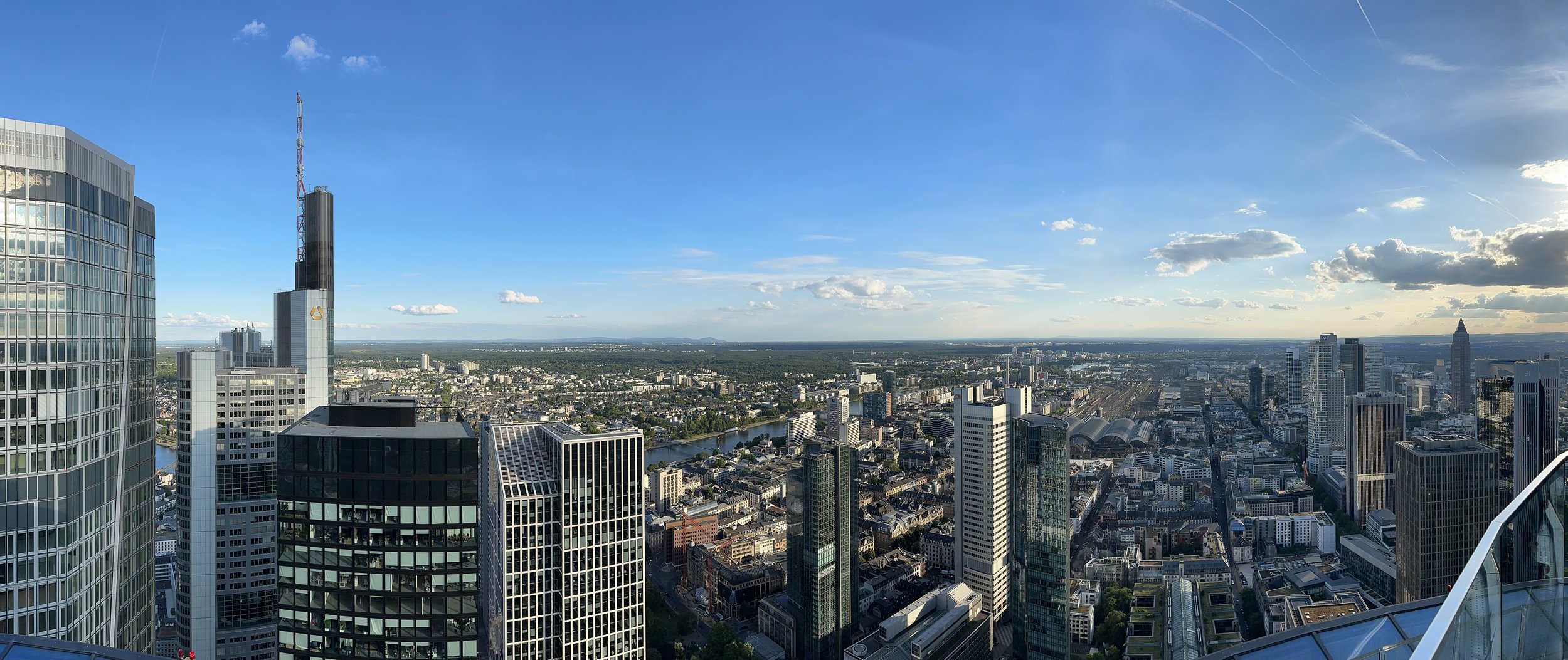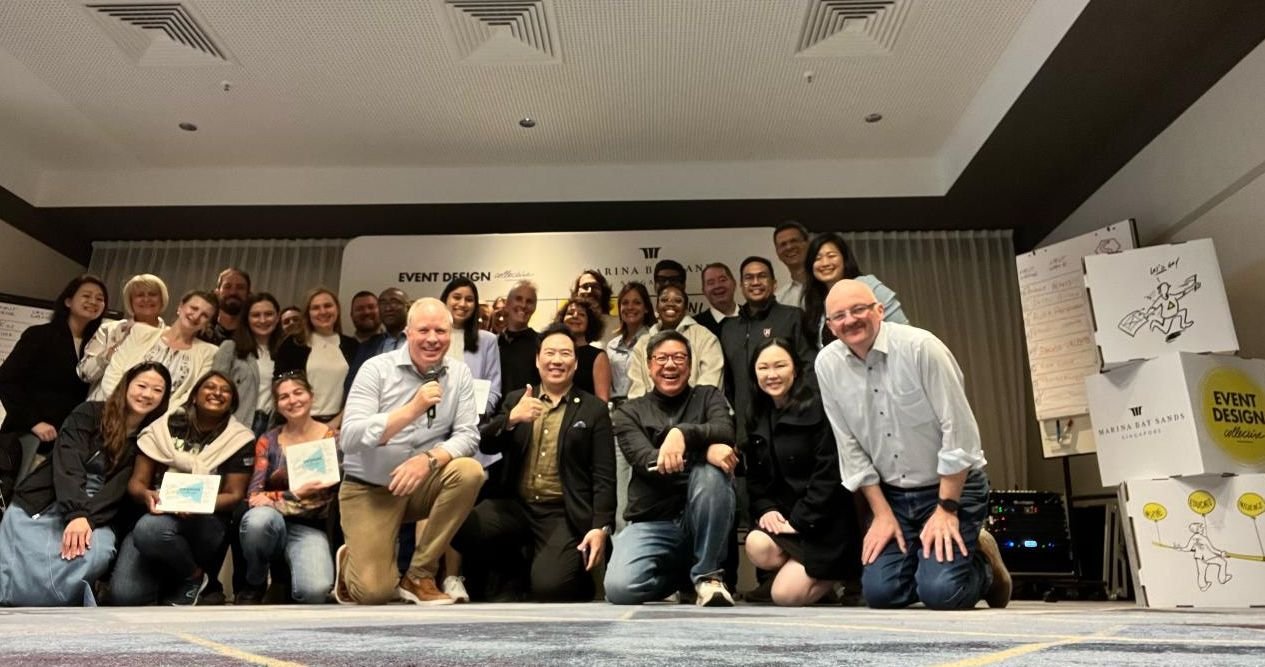Event planning experience at IMEX 2025 in Frankfurt
Frankfurt from the MainTower observation deck
IMEX Frankfurt is the European home of the world’s leading trade show for the meetings, incentives, conferences, and events (MICE) industry. This was my second time at IMEX Frankfurt looking for inspiration and updates to keep the events we execute at world-class levels.
On the Monday I was fortunate to be invited to the Events Design Collective education session on planning events using the Events Design Canvas. This was presented by Ruud Janssen and sponsored and hosted by Marina Bay Sands Singapore, a premier destination renowned for hosting world-class conferences and serving as a hub for innovation in event design and experiential strategy.
A mouse's-eye view of the Event Design Collective Event Canvas workshop
The Event Design Collective is a global network of event design professionals founded to promote strategic, outcome-driven approaches to designing events. At its core, the collective teaches a methodology rooted in design thinking, systems theory, and business strategy to help teams co-create impactful, intentional event experiences. Rather than focusing solely on logistics or creativity, the approach emphasises aligning events with organisational goals, stakeholder outcomes, and measurable behavioural change. The Collective also trains and certifies professionals in its methodology, aiming to elevate the role of event designers as strategic contributors within organisations.
Central to the Collective’s methodology is the Event Canvas, a visual strategic tool inspired by the Business Model Canvas. It guides teams through a structured process of mapping stakeholder expectations, defining desired behaviours, and evaluating the change required before and after an event. The canvas captures elements such as entry and exit behaviour, pain points, gains, commitment levels, and cost/revenue considerations. By working collaboratively on this one-page visual framework, stakeholders can clarify objectives, align on purpose, and ensure that event design decisions—from format to content—are purposefully crafted to drive the intended transformation.
We worked through the approach to planning an event for identified stakeholders and I was very impressed with the comprehensiveness of the model, but amazed at the simplicity. Across just a few hours we mapped out an approach to planning and delivering the Opening Ceremony of the 2032 Olympic Games in Brisbane, Australia.
This was a great session and a great reflection on both the Event Design Collective and Marina Bay Sands who have certified their Events team in this methodology. Many thanks to Ruud, Tracy, Kenneth, and Sherman.
Two books on The Event Canvas methodology rooted in design thinking, systems theory, and business strategy to help teams co-create impactful, intentional event experiences.



